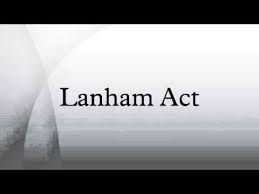False, but not disgorgeably false.
April 7, 2019 Beckton Dickson & Co., a manufacturer of safety syringes, lost its antitrust claims against a competitor but prevailed on its Lanham Act claims, and sought the remedy of disgorgement. A panel majority concluded that:
Beckton Dickson & Co., a manufacturer of safety syringes, lost its antitrust claims against a competitor but prevailed on its Lanham Act claims, and sought the remedy of disgorgement. A panel majority concluded that:
[T]he district court did not abuse its discretion in determining that where [Defendant Retractable Technologies, Inc.] had not sufficiently demonstrated that its business suffered due to BD’s false advertising and where BD had already taken significant steps to correct the false statements, disgorgement was not equitable. That another court could have evaluated the facts differently does not justify reversal, especially as “an award of profits with no proof of harm is an uncommon remedy in a false advertising suit.”
The majority’s reasoning is best summarized by the final paragraph of its opinion, which observes:
The district court’s denial of disgorgement of profits from RTI’s competitor was made against the larger backdrop of its prosecution of a meritless antitrust claim against BD for conduct in the marketplace—during a time in which RTI nearly doubled its own sales and increased its share of the retractable syringe sub-market to two-thirds. RTI elected not to test its proof of Lanham Act damages before the jury, but rather to later argue, as now, that equity mandates disgorgement. Its effort to carry the flag of “public interest” and guide the profits of its competitor to its own coffers here must fail. That effort must be taken outside—to the marketplace. There the public interest is best vindicated.
A dissent thought that the district court had exceeded its mandate after a previous appeal. Retractable Technologies, Inc. v. Beckton Dickinson Inc., No. 17-40960 (March 26, 2019). Professor Rebecca Tushnet recently discussed the case on her 43(B) blog.